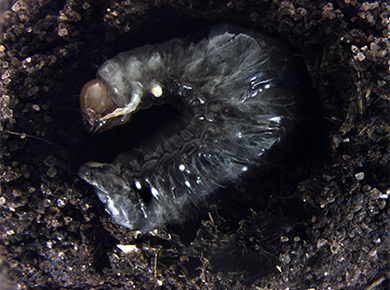Project 13
Adaptation through niche construction and microbiome function in Onthophagus beetles
Led by Armin Moczek

This project on Onthophagus dung beetles investigates the roles of the microbiome and larval conditioning in facilitating ecological specialisation across dung types, responses to novel anthropogenic challenges such as antibiotics and toxins, and enabling plastic responses to natural environmental fluctuations. We are testing whether novel microbiome members result in the acquisition and stable non-genetic inheritance of novel functions.
Publications
Transgenerational developmental effects of species-specific, maternally transmitted microbiota in Onthophagus dung beetles.
[download PDF]
Parker ES, Dury GJ, Moczek AP. 2018. Ecological Entomology DOI: 10.1111/een.12703
Diplogastrellus nematodes are sexually transmitted mutualists that alter the bacterial and fungal communities of their beetle host.
[download PDF]
Ledón-Rettig CC, Moczek AP, Ragsdale EJ. 2018. PNAS DOI: 10.1073/pnas.1809606115.
Evidence of developmental niche construction in dung beetles: effects on growth, scaling and reproductive success
[download PDF]
Schwab DB, Casasa S, Moczek AP. 2017. Ecol Lett 188(6):679-692.
Developmental and ecological benefits of the maternally transmitted microbiota in a dung beetle.
[download PDF]
Schwab DB, Riggs HE, Newton ILG, Moczek AP. 2016. Am Nat 188(6):679-692.
Blog posts
Maternally transmitted dung beetle microbiota are species-specific, and impact host development across generations
Parker ES, Moczek AP. 29 Nov 2018.
Developmental niche construction in dung beetles
Schwab DB, Casasa S, Moczek AP. 16 Oct 2017.
Mum’s microbes are important for dung beetle development
Falkenberg KJ. 28 Nov 2016.
EES predictions this project tests
View projects:
- Conceptual issues
- Evolutionary innovations
- Inclusive inheritance
- Evolutionary diversification